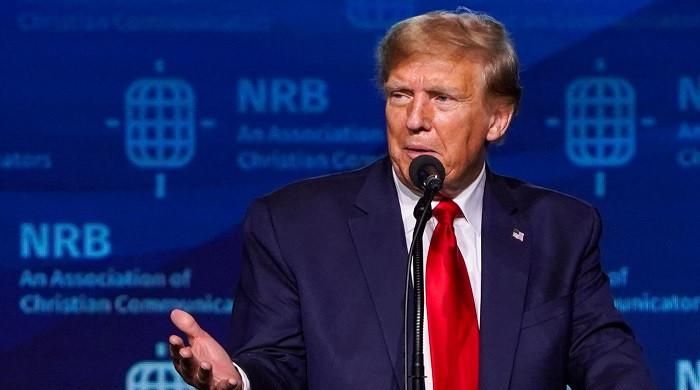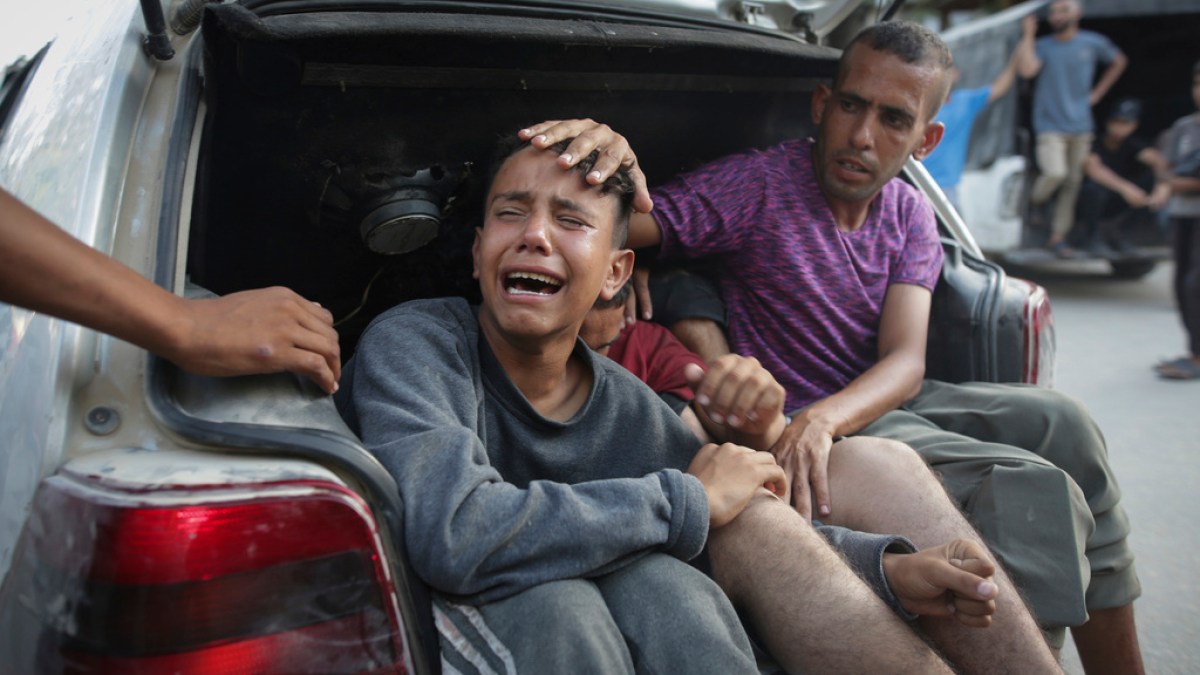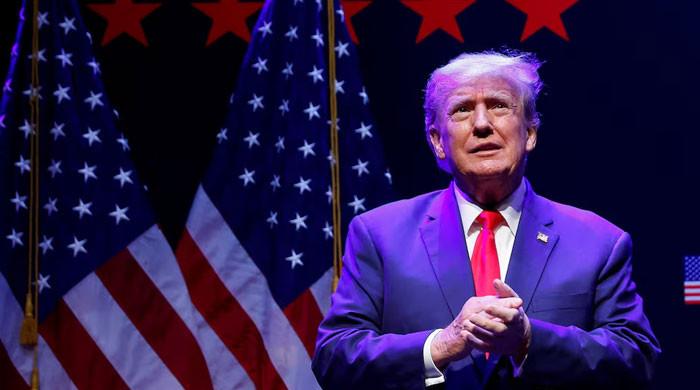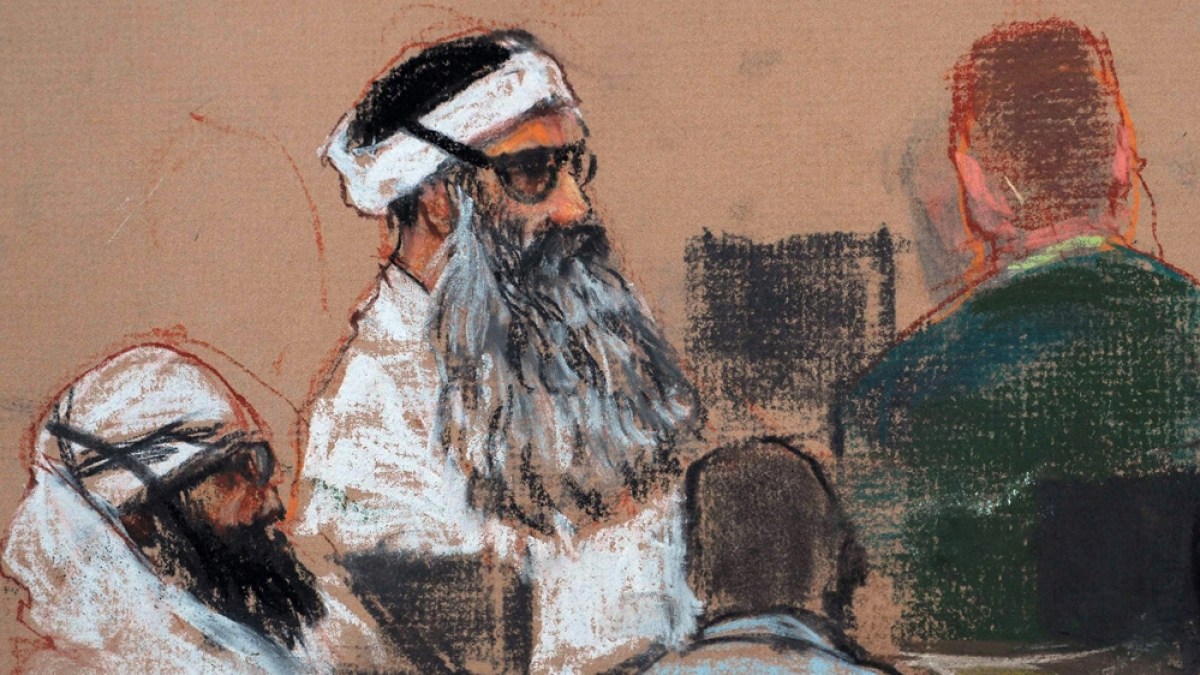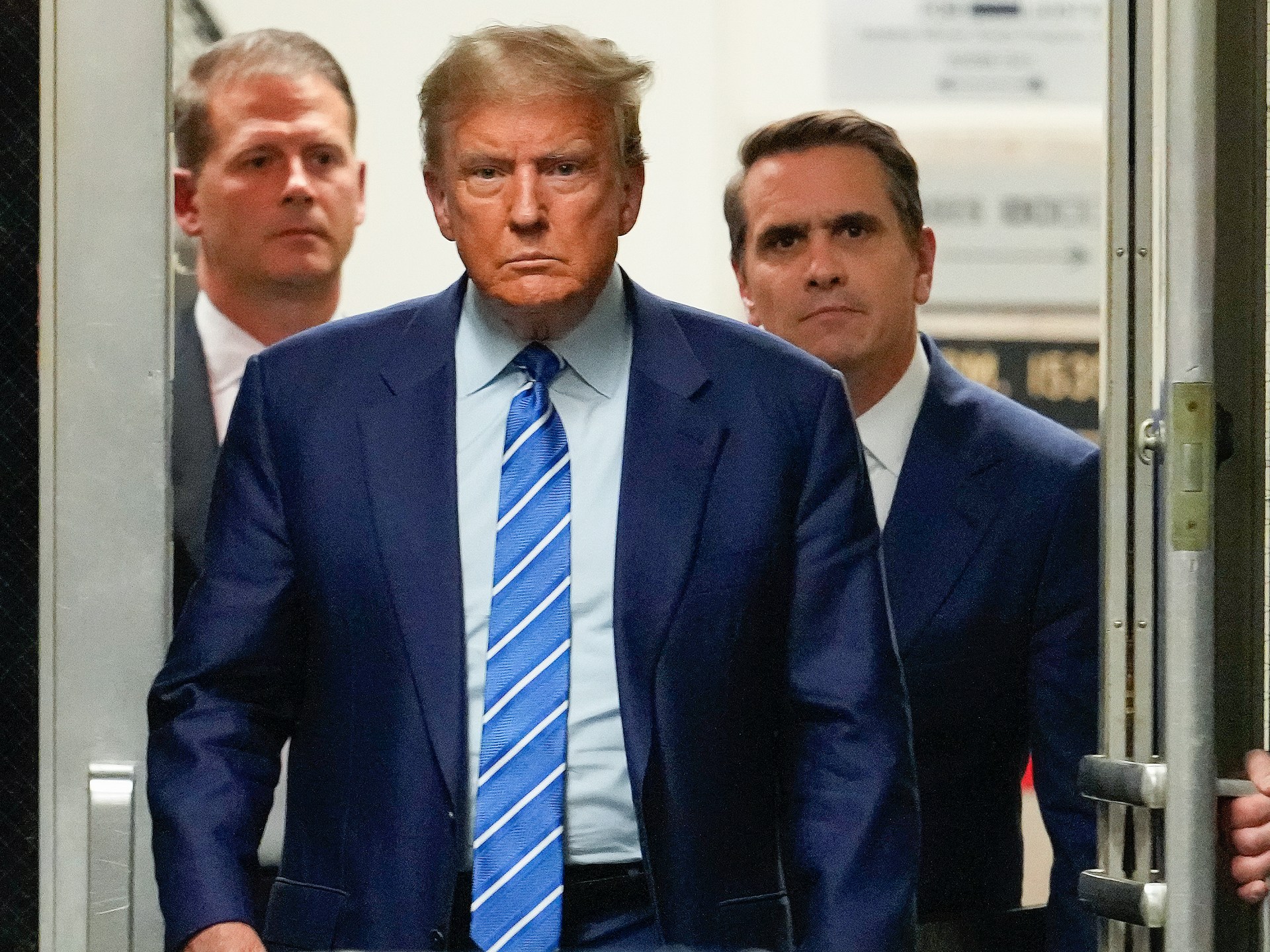WASHINGTON: Former President Donald Trump has immunity only for official actions taken in office, the Supreme Court ruled Monday, overturning a lower court ruling that had denied him legal protection from criminal charges stemming from his controversial efforts to manipulate the results of the 2020 election.
As a result of this landmark ruling, the federal election interference case against the Republican presidential candidate will now return to a lower court that will decide how best to implement this ruling.
The court, in a 6-3 decision, ruled that while former U.S. presidents enjoy immunity for actions taken within their constitutional authority, they are not entitled to it for acts performed in a private capacity.
The ruling marked the first time since the nation's founding in the 18th century that the Supreme Court declared that former presidents can be protected from criminal charges at any stage.
Chief Justice John Roberts announced the landmark ruling on behalf of the court's six-justice conservative majority. The court's three liberal justices dissented.
The decision came after Trump appealed a lower court ruling that denied his request for immunity. The court decided the case on his final day in office.
“We conclude that under our constitutional structure of separated powers, the nature of presidential power requires that a former president enjoy some immunity from criminal prosecution for official acts during his term in office,” Chief Justice John Roberts wrote in Monday’s opinion.
“At least with respect to the President's exercise of his fundamental constitutional powers, this immunity must be absolute.”
“The President does not enjoy immunity for his unofficial acts, and not everything he does is official. The President is not above the law,” Roberts wrote.
Trump is the Republican candidate facing Democratic President Joe Biden in the Nov. 5 presidential election, in a rematch of four years ago. The court’s slow handling of the case had already helped Trump, making it unlikely that any trial on the charges brought by special prosecutor Jack Smith could be completed before the election.
Trump had argued that he enjoyed immunity from criminal prosecution because he was serving as president when he took the actions that led to the charges. Smith had argued against presidential immunity from criminal prosecution based on the principle that no one is above the law.
During April 25 arguments in the case, Trump's legal team urged the justices to fully shield former presidents from criminal charges — “absolute immunity” — for official acts performed in office. Without immunity, Trump's lawyer said, sitting presidents would face “blackmail and extortion” from political rivals because of the threat of future prosecutions.
The court's 6-3 conservative majority includes three Trump-appointed justices. The election subversion charges against Smith represent one of four criminal cases Trump has faced.
Trump, 78, is the first former US president to be criminally prosecuted, as well as the first former president convicted of a crime.
In the indictment filed in August 2023 by the special counsel, Trump was charged with conspiring to defraud the United States, corruptly obstructing an official proceeding and conspiring to do so, and conspiring against Americans' right to vote. He pleaded not guilty.
Trump's trial was scheduled for March 4 before delays over the immunity issue. Now, no trial date has been set. Trump filed his request for immunity with the trial judge in October, meaning the issue has been litigated for about nine months.
In a separate case filed in a New York state court, Trump was found guilty by a Manhattan jury on May 30 of 34 counts of falsifying documents to cover up money paid to a porn star to keep a sex scandal from happening before the 2016 election. Trump also faces criminal charges in two other cases. He has pleaded not guilty in those cases and said all of the cases against him were politically motivated.
A lawyer for the special counsel's office told the Supreme Court during arguments that the “absolute immunity” sought by Trump would shield presidents from criminal liability for bribery, treason, sedition, murder and, as in this case, trying to overturn the proper results of an election and remain in power.
During arguments, the justices asked hypothetical questions about whether a president could sell nuclear secrets, take bribes or order a coup or political assassination. If those actions were official conduct, Trump's lawyer argued, a former president could only be impeached if he was first impeached in the House of Representatives and then convicted in the Senate — something that has never happened in U.S. history.
In a Reuters/Ipsos poll in May, only 27% of respondents (9% of Democrats, 50% of Republicans and 29% of independents) agreed that presidents should be immune from prosecution unless they have first been impeached and convicted by Congress.

